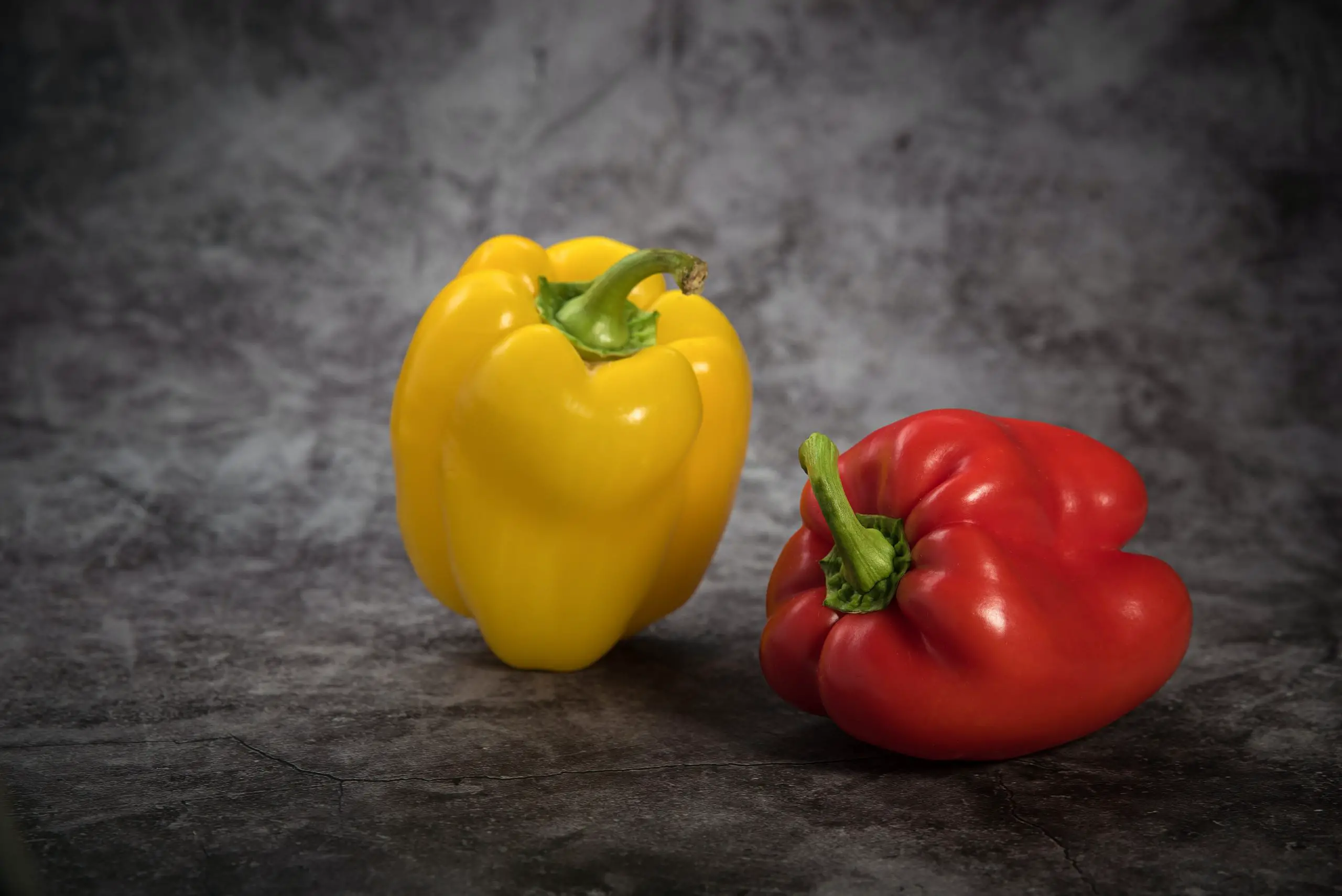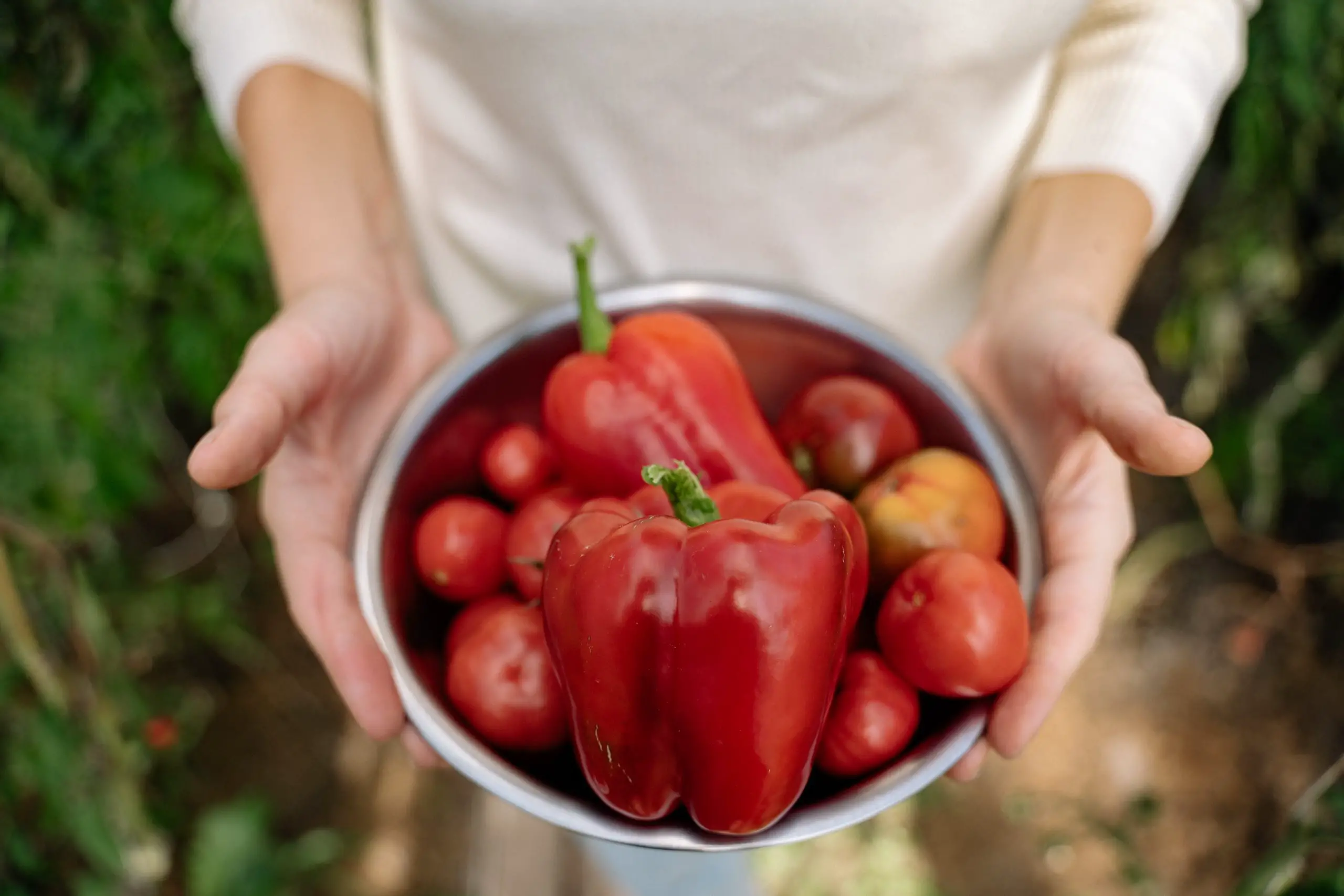Bell peppers are a common ingredient in kitchens everywhere since they enhance many foods’ flavor, color, and nutritional value. However, bell peppers have a finite shelf life and will ultimately go rotten. How long does capsicum last in the fridge?
The type of bell pepper, how it is prepared, and how it is stored are a few variables that will determine the answer. This post will cover these elements and offer advice on keeping your bell peppers fresh and tasty for as long as possible while extending their shelf life. So let’s get started!

How Long do Bell Peppers Last in the Fridge?
Bell peppers are a versatile and nutritious addition to any meal. When it comes to storing bell peppers, the fridge is usually the best place to keep them fresh. But how long do bell peppers last in the fridge? The answer depends on a few factors.
First, the type of bell pepper can affect its shelf life. Green bell peppers last longer than red bell paper, yellow, or orange because they are less ripe and have thicker skin. This means they are less prone to spoilage and can stay fresh for up to a week or more when stored properly.
On the other hand, red, yellow, and orange bell peppers are riper and have thinner skin, which makes them more susceptible to spoilage. In addition to the type of bell pepper, the way it is stored can also affect its shelf life. These bell peppers will usually last for about 3-5 days in the fridge.
How Long does Bell Peppers Stay at Room Temperature?
Bell peppers can be held at room temperature for a few days, but their quality may deteriorate. The type of pepper, the humidity and temperature of the space, and the freshness of the pepper when purchased are just a few of the variables that affect how long bell peppers will keep fresh at room temperature.
Bell peppers should generally be used within a few days of purchase to ensure their quality is at its highest. The peppers should be refrigerated to increase their shelf life if you cannot utilize them within this window.
How should you Store Bell Peppers?
Bell peppers are a versatile and flavorful addition to many dishes, but they can be prone to spoilage if not stored properly. The bell pepper’s shelf life can change depending on how they are handled and kept, so it’s crucial to keep that in mind.
You should throw away the peppers if you spot any rotting indicators, such as softness, discoloration, or an unpleasant odor. Here are a few tips for storing bell peppers to help extend their shelf life and keep them fresh:
- Refrigeration: The best way to store bell peppers is in the refrigerator. To do this, place the peppers in a plastic bag or container and keep them in the crisper drawer. This will help keep the peppers fresh and prevent them from drying. Be sure to remove any excess moisture from the bag or container to prevent the peppers from getting soggy.
- Freezing: If you have more bell peppers than you can use before they go bad, you can freeze them to extend their shelf life. To freeze bell peppers, wash and slice them, then place them in a single layer on a baking sheet. Freeze the peppers until they are solid, and then transfer them to a resealable plastic bag or container. Frozen bell peppers will last for several months in the freezer.
- Drying: Another option for preserving bell peppers is to dry them. To dry bell peppers, slice them into thin strips or chop them into small pieces. Place the pepper slices or pieces in a single layer on a baking sheet and place the sheet in the oven at the lowest possible setting (usually around 150-200°F). Dry the peppers for several hours until they are completely dry and crisp. Place the dried peppers in an airtight container.
Here are Some Tips for Storing Bell Peppers to Help them Stay Fresh for as Long as Possible:
- Place bell peppers in the crisper drawer of your fridge. This will help to keep them at the right temperature and humidity level to prevent spoilage.
- Wait to wash bell peppers before storing them. Washing them will remove the natural protective coating on their skin and make them more prone to spoilage.
- Keep bell peppers whole until you are ready to use them. Cutting them into slices or chunks will expose more surface area to the air, which can cause them to spoil more quickly.
- If you need to cut bell pepper, wrap the unused portion tightly in plastic or foil and store it in the fridge.
- Avoid storing bell peppers near foods containing ethylene gas, such as bananas or apples. Ethylene gas can cause vegetables to spoil more quickly.
- The ideal temperature for whole bell peppers is 45 to 55 degrees Fahrenheit. However, this depends on the ripeness of the peppers.
- You should also avoid storing peppers in direct sunlight. Sunlight can cause discoloration and loss of nutrients. This is why you should store them in a cool, dry place.
- You can keep peppers in an airtight plastic bag or container to store them for longer. Make sure to remove the seeds.
How can you Tell if your Bell Peppers have Gone Bad?
If you notice any of these indications, it is best to discard the bell peppers to avoid the risk of food poisoning. It’s crucial to keep in mind that the shelf life of bell peppers can vary depending on how they are handled and stored, so it’s always a good idea to check them for freshness before using them.
The emergence of wrinkles and weaker skin are two signs that peppers are frequently aging. These peppers can still be utilized in cooking but are unpleasant to consume uncooked. They will start to get sticky, and mold will start to grow shortly after they soften. Some signs can indicate that your bell peppers have gone bad:
- Softness: If your bell peppers start to feel soft or squishy, it may be a sign that they are going bad.
- Discoloration: If your bell peppers are starting to turn yellow, brown, or black, it may be a sign that they are starting to spoil.
- Off smell: If your bell peppers have an off smell, or if they smell rotten or sour, it may be a sign that they are no longer fresh.
- Molds: If you notice any molds growing on your bell peppers, it is a clear sign that they have gone bad and should be discarded.
What Happens if you Consume Bad Bell Peppers?
The symptoms of eating a bad bell pepper can vary depending on the type and severity of the spoilage. If you eat bad bell pepper, you may experience digestive discomfort, including symptoms like stomach cramps, nausea, and diarrhea. In some cases, you may also experience vomiting or a loss of appetite.
For example, if the pepper is bruised or has a few blemishes, you may not experience any symptoms. On the other hand, if the pepper is severely spoiled and has been contaminated with bacteria or other harmful microorganisms, you may experience more severe symptoms.
It’s important to note that eating a bad bell pepper is generally not a serious health concern, and most people will recover without any long-term effects. However, if you experience severe or persistent symptoms after eating a bad bell pepper, it is always a good idea to consult a healthcare professional for advice.
What are the Health Benefits of Eating Bell Peppers?
Bell peppers are a nutritious and flavorful addition to any diet. It’s important to note that the health benefits of bell peppers may vary depending on how they are prepared and consumed. For maximum benefit, it is best to eat a variety of fresh, whole foods, including bell peppers, as part of a well-balanced diet.
Here are Some Health Benefits of Eating Bell Peppers:
- High in vitamins and minerals: Bell peppers are an excellent source of vitamins and minerals, including vitamin C, vitamin A, vitamin B6, and potassium.
- High in antioxidants: Bell peppers contain various antioxidants, including carotenoids like beta-carotene and lutein, which can help protect cells from damage caused by free radicals.
- Low in calories: Bell peppers are low in calories, making them a great choice for people trying to manage their weight.
- May promote heart health: Some studies have suggested that bell peppers’ antioxidants may help reduce the risk of heart disease by lowering cholesterol levels and improving blood pressure.
- May have anti-inflammatory effects: The antioxidants in bell peppers may also have anti-inflammatory effects, which may help to reduce the risk of chronic diseases like cancer, diabetes, and Alzheimer’s disease.
The consumption of pepper fruits (Capsicum annuum L.) has attracted attention largely because of their bioactive components and importance as dietary antioxidants. The findings demonstrated that the pepper cultivars’ concentrations of antioxidant components and taste-related attributes varied at both the mature and whole-colored ripening phases.
Conclusion
In conclusion, bell peppers can last for several days at room temperature; although their quality may be shelf life, it is best to store them in the refrigerator. In the fridge, bell peppers can last for about a week or more, depending on their freshness when you purchase them. If you need to store bell peppers for longer, you can freeze them. Frozen bell peppers will last for several months in the freezer.
It’s important to remember that how bell peppers are handled and stored might affect how long they stay fresh. It is recommended to throw away the peppers if you see any signs of deterioration, such as softness, discoloration, or an unpleasant odor. Or an off smell, it is best to discard the peppers. By following proper storage techniques, you can help to ensure that your peppers stay fresh and flavorful for as long as possible.
